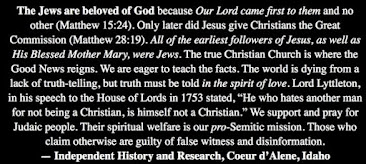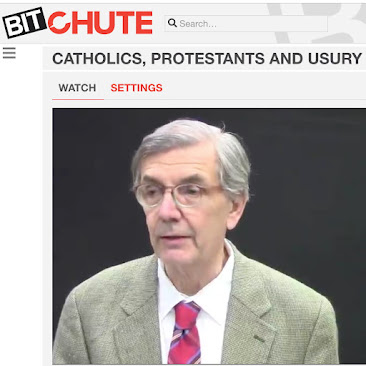Editor’s note: Thomas J. “Stonewall" Jackson, the descendant of
white slaves (“indentured servants”) was a genuine American hero. S.C. Gwynne has mostly upheld this assessment in this new biography,
Rebel Yell.
As I write these words, news reaches me that the People’s Republic of California has
banned the sale or display of the Confederate battle flag in government buildings and facilities. The U.S. flag which was flown by Union Generals Sherman, Sheridan and Custer
who, after the Civil War, proceeded to attempt to exterminate the American Indian, continues to fly in California, as it should, since it was hallowed by the valor of American marines, soldiers and sailors. But the hypocrisy in California is breathtaking. The Northern flag of the would-be exterminators of the Indian has no more claim on moral superiority than does the flag of the States Rights' constitutionalists and slaveholders of the South. Either ban both flags, or let them both be. — Michael Hoffman
__________________________
Holy Warrior
Book Review:
Rebel Yell by S.C. Gwynne
Scribner, 672 pages, $35
When she heard that "Stonewall" Jackson had died in Virginia at the midpoint of the Civil War, Martha Ann Haskins wrote in her diary: "I felt as miserable as if I could shut myself in some dark place where I could see no one and there cry, weep, mourn until the war was over." At the time, Haskins was a 16-year-old schoolgirl far away in Tennessee, but her wail of mourning was anything but solitary. Jackson's death occasioned an outpouring of grief throughout the South.
Little wonder, given Jackson's legendary feats on the battlefield. But the man who occasioned such grief was a bundle of contradictions, and some of his most striking qualities were far from flattering. By all accounts he was a very unsocial man, who (according to his staffer Henry Kyd Douglas ) "kept himself always very much apart." At the dinner table, he was "as grave as a signpost" and any staffer who ventured to tell "some little jokes" had to be sure they were "very plain ones for him to see them."
Though Jackson's soldiers were in awe of him, he was a camp-and-battlefield tyrant who arrested and court-martialed subordinates for the slightest disappointment of his expectations. J. William Jones, an army chaplain and biographer of Robert E. Lee, believed that Jackson "probably put more officers under arrest than all others of our generals combined." In August 1862, Jackson put a brigadier-general and five regimental commanders under arrest after discovering that some of their men had purloined, for firewood, a few rails from "a certain worm-fence at a little distance."
But Jackson was also, for all his maniacal furies, a man of unusually intense Christian piety. James Power Smith, a member of Jackson's staff, recalled that he "was that rare man . . . to whom religion was everything." Beverley Tucker Lacy, a Presbyterian minister who served as a chaplain-at-large for Jackson's troops, remembered that Jackson thought "every act of man's life should be a religious act," even "washing, clothing, eating." Religion opened up in Jackson what amounted to a different personality. His prayers were "unlike his common quick & stern emphasis," Lacy recorded. They were "tender, soft, pleading" and full of "confession of unworthiness." He prayed with a self-effacement that carried "the doctrine of predestination to the borders of positive fatalism."
This piety made an odd man odder still, since the profession Jackson had chosen for himself did not, at the time, look favorably on soldiers fiddling with religion. Jackson was a West Point graduate (Class of 1846) and fought with well-noticed valor as a junior officer in the Mexican War. But in the hard-bitten atmosphere of the Army, praying soldiers were often socially shunned and professionally unrewarded. Jackson, though, rose to a generalship: From the time he was given independent command of a minor Confederate field army in July 1861 until his death in May 1863, he managed to execute some of the most extraordinary military operations in American history.
S.C. Gwynne, a longtime editor and writer for
Texas Monthly, has an eye for outlier characters. His
Empire of the Summer Moon (2010) featured Quanah Parker, the mixed-race chief who was the last of the Comanches to surrender to federal military authority but who also became a successful rancher and the founder of the peyote cult. In
Rebel Yell, Mr. Gwynne's easy, loping style wraps itself effortlessly around the particulars of Stonewall Jackson's life, from his back-of-the-mountain upbringing to the outburst of military genius in the Civil War. The result is a narrative vivid with detail and insight but so frankly admiring that few of Jackson's foibles pass without rationalization and few of his failures without excuse.
Jackson was born in 1824, descended from two convicts who had been transported as indentured servants to America in the 1750s. His luckless lawyer-father died in 1826; his mother re-married to a useless low-life, and the boy was farmed out to his father's relatives, rough mill-owners in the western Virginia mountains. "He was not disposed to talk much of his childhood and youth," remembered his future wife, Mary Anna Morrison, "for the reason that it was the saddest period of his life."
The way out of the mountains led through West Point, where a distant kinsman got Jackson an appointment in 1842. He arrived "dressed in homespun, a hat of coarse felt on his head"—and possessing a "terrible earnestness" to succeed. The Mexican War broke out just as Jackson was graduating, and he saw in it nothing but opportunity. "I really envy you men who have been in action," he told another officer, "I want to be in one big battle." He got his wish
at Chapultepec on Sept. 13, 1847, when his battery section was caught in the open and Jackson continued to serve the gun even when all but one of his crew had been killed or driven to cover. Chapultepec won him the personal commendation of Army commander Winfield Scott.
The postwar years were less happy for Jackson. He quarreled with his commanding officer at Fort Meade, and when a position at the Virginia Military Institute opened up, he resigned from the Army to become an instructor. He married in 1853, only to have his wife die in childbirth. His habits in diet, health and manner became ever more eccentric, though he managed to re-marry quite happily in 1857.
By now, the entire nation was becoming consumed in the toxic run-up to the Civil War, and Jackson found himself, as a slaveowner, torn between his strong Union feeling and his anxiety that "the Free States" were determined to override the states' rights "which the fair interpretation of the Constitution . . guarantees us." When Virginia joined the Confederacy in April 1861, Jackson first served as a drillmaster and was then soon promoted to colonel.
By July, he had been promoted still further, to brigadier general, and had taken charge of a Virginia brigade at the First Battle of Bull Run. His brigade's defiant stand earned him the nickname "Stonewall" ("there stands Jackson like a stone wall," cried one Confederate general), and the nickname became Jackson's banner.
But he was only beginning his rise to fame. In 1862, with less than 20,000 ragged rebel infantry, Jackson defeated three separate Union armies in five lightning battles in the Shenandoah Valley and derailed the great Union campaign against Richmond. He struck fiercely, swiftly, as though he had read the minds of his opponents and could anticipate their every bewildered response.
Later that summer he bloodied another Union army at Cedar Mountain and helped his admiring commander, Robert E. Lee, trap and smash another Union force at the Second Bull Run. He then went on to capture Harpers Ferry and bag more than 12,000 Union prisoners. He was key to Confederate survival at the battles of Antietam and Fredericksburg and commanded the crushing blow that collapsed the Union Army at Chancellorsville and sent it fleeing for the fords of the Rappahannock River. All of this Mr. Gwynne narrates in fine style. His description of Jackson's actions at Second Bull Run, in August 1862, is probably the finest short account of that battle on offer.
But there are many respects in which Mr. Gwynne remains as baffled by Jackson's oddities as Jackson's contemporaries were. Jackson's health obsessions were legion. He suffered from gastrointestinal pains; he was obsessed with his vision, liver, kidneys and lungs and pursued quack cures with a gullible intensity. Granted that much of this was psychosomatic, Mr. Gwynne nevertheless misses an opportunity to use these obsessions to re-create the environment of anxiety with which all 19th-century Americans surrounded themselves on the subject of disease and death.
Mr. Gwynne appreciates more than many Jackson biographers the extraordinary administrative skills that went with Jackson's dazzling military moves. And he clearly understands that the Union and Confederate armies were collections of part-time amateurs and that only a few officers had any experience at maneuvering large bodies of men. As a result, the Civil War's senior generals were a timid lot. Their West Point educations (when they had one) taught them how to build fortifications, not lead troops in combat. Uncertain of how to maneuver and supply their commands, they preferred hesitation and caution lest their undisciplined cohorts fall apart.
Not Jackson—which raises the compelling question of what made him so different. Nothing in his West Point education distinguished him from his counterparts. Was his rapid rise to prominence in the Civil War merely a matter of good timing, pitting him against unusually incompetent Union generals like Nathaniel Banks ( Shenandoah), John Pope (Second Bull Run) and Joseph Hooker (Chancellorsville)? Or did he possess a special genius that the Civil War had suddenly revealed?
John Esten Cooke, a writer who served in the Confederate army, thought that Jackson's battles would be studied in the future "as the campaigns of Caesar and Napoleon are studied—as the recorded work of a master in the art of war." One modern commentator,
A. Wilson Greene, has summed-up Jackson's greatness in six parts: "deception and secrecy; celerity on the march; strong discipline; decisiveness in combat; belief in total victory; and personal bravery and modesty.”
James I. Robertson, author of the magisterial
Stonewall Jackson: The Man, The Soldier, The Legend (1997), praises the Shenandoah Valley campaign as "a strategic masterpiece." Jackson himself was simpler: "I always have one single, simple opinion . . . and that is to attack the enemy wherever we find him."
Others, however, have not been so sure that this formula necessarily translated into greatness. After Jackson's death, the
London Times suggested that Jackson "was not a great strategist" but did have a knack for solving immediate battlefield problems. Jackson's performance during the Peninsula Campaign in Virginia, in which he marched in the wrong direction and loitered with unusual passivity out of reach of the fighting, has always been a puzzle. Mr. Gwynne, like many of Jackson's partisans, blames it on poorly written orders from Robert E. Lee and a lamentable let-down by local guides.
Robert G. Tanner, who wrote the finest overall study of Jackson's 1862 Shenandoah campaign,
Stonewall in the Valley (1976), wondered whether Jackson's victories were worth the toll they exacted from his own men. Peter Cozzens, in
Shenandoah 1862 (2008), noticed how, under the whip of Jackson's march-or-die demands, "nearly a third of his force melted away during the campaign." Jackson tended "to feed his army into battle piecemeal" and so caused "unnecessarily high losses and prolonged some contests longer than was warranted."
Mr. Gwynne, however, is much more protective of Jackson. On the whole, he presents Jackson's military prowess as largely the by-product of a well-managed secrecy and deception and an unrelenting aggressiveness. He implies that if Jackson erred by too much aggression—for instance, by his clangorous urging that the Confederate army take the war into the North, burning a path if necessary all the way to Lake Erie—the Confederacy's slim chances gave Jackson little choice but to take great risks.
A more nagging question, not sufficiently explored in
Rebel Yell, concerns Jackson's religion and what it might have led him to do had not the skirmishers of the 16th North Carolina mistook him for the enemy after dark at Chancellorsville, Va., in May 1863, and inflicted the three gunshot wounds that helped kill him. (
Strictly speaking, he died of pneumonia.) Mr. Gwynne understands that Jackson's eccentricities were, in part, emblems of an inner struggle between his unhallowed ambition and genuine piety. But he is not as discerning about the direction in which those anxieties were tending.
After the South's secession,
Jackson was clearly disappointed that the Confederacy had not seized the chance to re-construct an explicitly Christian nation. "I am afraid that our people are looking to the wrong source for help," Jackson complained to his pastor. "If we fail to trust in God & to give him all the glory our cause is ruined."
But
apart from a brief allusion to God in the new Confederate constitution, the Confederate government did no more than the U.S. Constitution to legalize the recognition of Christianity.
Jackson hoped to find in evangelical Christianity a form of virtue that could govern public order in the Confederacy in the way it governed his private life. "It was his earnest desire," wrote Jackson's chief of staff and personal theologian, Robert Lewis Dabney, that "the people of the Confederate States . . . should recognize the rights of God more distinctly, and that the Christian Church should put forth more saving power in society.”
No wonder, then, that Jackson turned such ferocious energies against the Yankee armies: They threatened the opportunity to install a new Christian order in an independent Confederacy. "I myself see in this war, if the North triumph, a dissolution of the bonds of all society," Jackson wrote in 1862.
Although the conventional wisdom holds that religion made Stonewall Jackson a repressive personality, his Calvinistic Presbyterianism in fact acted permissively on him, allowing him to advocate all-out war on his subordinates as much as on the Yankees. According to Lacy, Jackson's most "often speculated topic was: 'Duty ours, consequences God's.' " Religion made him the domineering soldier he was, not because it forced him to inhumane policies but because it gave
a man who was, in private, humane, shy and gentle the permission he needed to pursue them.
It's worth wondering whether, had a bullet cut down Robert E. Lee rather than Thomas Jonathan Jackson at Chancellorsville, Jackson might have succeeded in making the Army of Northern Virginia over into the "converted army" he told Lacy he desired and then using it to march on the centers of power and install a Christian government.
But it was not to be and probably could never have been. Southerners mourned Jackson's death, but in the postwar years the apostles of the Lost Cause found greater ease in making Robert E. Lee—the genteel aristocrat and mild-mannered Episcopalian—into the model Confederate soldier, a public personality far less relentless than that of Thomas Jonathan Jackson.
***














